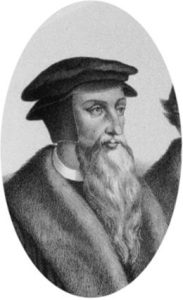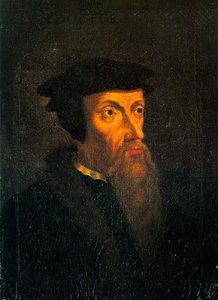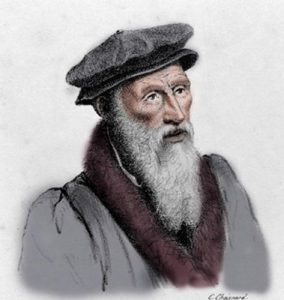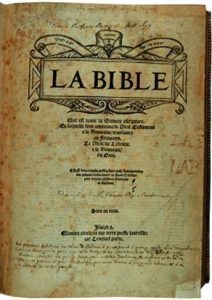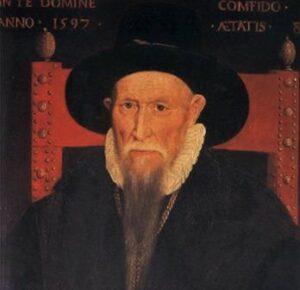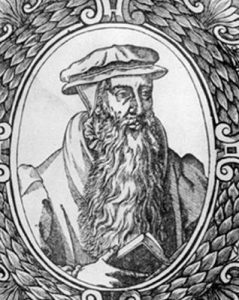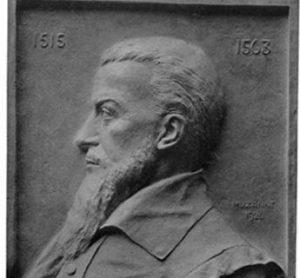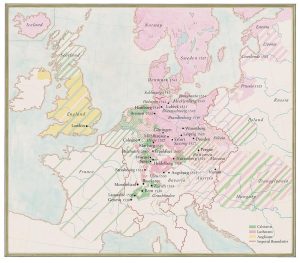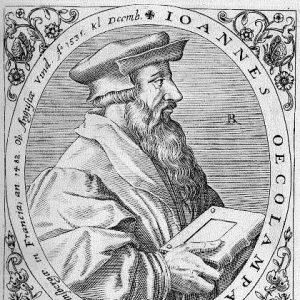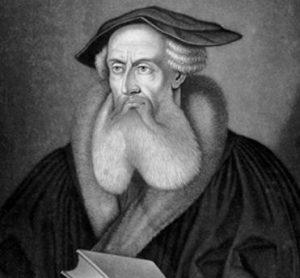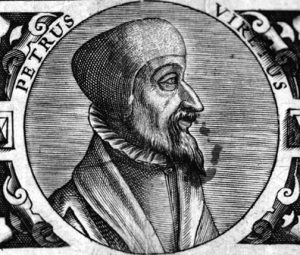The birth of the Reformation
The reformed movement was launched by Zwingli in Switzerland, namely in Zurich, around 1519-1520. Zwingli, a curate at Zurich cathedral, had studied extensively in Vienna and Basel, and was influenced by humanism.
He further progressed with the help of Jean Calvin, a French man also influenced by humanism, who published the Institutes of the Christian Religion in 1536. The book, first published in Latin, was an immediate success and was soon translated into French. The book clearly, resolutely and systematically presented the reformed ideas.
He was asked to become the spiritual leader of the city of Geneva, which became the stronghold of the « reformed » Reformation.
The word “Reformed” rather than “Calvinist” is used because the movement was launched by several men – namely Zwingli, Martin Bucer, Calvin, John Knox- not by Calvin alone. Guillaume Farel, Olivétan, Théodore de Bèze, and Sébastien Castellion should also be mentioned.
Members of this movement settled in Switzerland, in France, in Scotland, in the Netherlands, and in Hungary.
The Lutheran reformation and the “reformed” Reformation had much in common, except for a slight dissent and a major disagreement.
The slight dissent stemmed from the focusing of the Lutheran Reformation on free salvation, while the Reformed Reformation focused on reading the Bible. Of course the Lutherans also thought that understanding the Bible was paramount, and the Reformed that salvation was free.
The disagreement was about the Eucharist. The Lutherans remained close to the Catholic doctrine, whereas the Reformed rejected it. In the XVIth century it prevented any alliance, though their very existence should have prompted them to reach an agreement.

